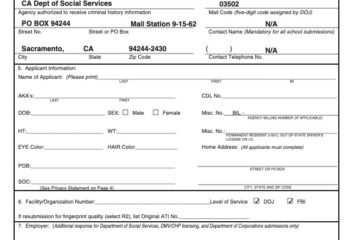Notarizing documents for minors presents unique legal challenges. Unlike adults, minors cannot legally sign contracts or many official documents without a parent or guardian’s consent. Whether for travel consent forms, school permission slips, or legal agreements, notaries must follow strict procedures to ensure compliance with state and federal laws.
Understanding the legal requirements, best practices, and common challenges in notarizing documents for minors is essential to prevent errors and avoid document rejection.
Understanding Notarization for Minors
A minor is anyone under the legal age of adulthood, which is 18 in most states. Since minors typically cannot enter into legal contracts, notarization involving them often requires a parent or legal guardian’s signature.
Notaries play a crucial role in ensuring the identity and willingness of the parties involved in signing. They must verify that the minor, if required to sign, understands the document and that the parent or guardian is legally authorized to sign on the minor’s behalf.
Common Documents That Require Notarization for Minors
Many documents involving minors require notarization, including:
- Parental consent forms for travel, which are needed when a minor travels internationally without both parents.
- Medical release forms, which authorize another adult or medical provider to make healthcare decisions for the minor.
- School-related documents, such as permission slips, enrollment applications, or homeschooling affidavits.
- Adoption or guardianship documents, which require legal validation.
- Passport applications, which often require notarized consent from a non-present parent.
Each document serves a specific legal purpose, and notarization ensures that the required parental or guardian consent is legally valid.
Step-by-Step Guide to Notarizing Documents for Minors
Step 1: Confirm Who Needs to Sign the Document
Notaries must determine who is legally required to sign the document. If a minor is signing, they may need a guardian’s co-signature or permission. In cases like travel consent forms, the parent(s) or legal guardian(s) must sign instead of the minor.
Before proceeding, review the document’s instructions and check state laws regarding notarization for minors. Some states prohibit minors from signing legal agreements, while others allow minors to sign if they meet certain conditions.
Step 2: Verify the Identity of the Signer(s)
Notaries are responsible for verifying the identity of the signers. In most cases, parents or guardians must present a valid government-issued ID such as a driver’s license or passport.
If the minor is required to sign, they may also need to provide identification, depending on state regulations. Some states accept school ID cards, birth certificates, or other government-issued IDs for minors.
If the minor does not have a government-issued ID, some states allow credible witnesses—individuals who swear under oath that they personally know the minor—to verify identity.
Step 3: Ensure the Minor Understands the Document
If the minor is required to sign, the notary must ensure that they understand the document’s purpose. This is especially important for legal documents where the minor is directly involved, such as emancipation paperwork or legal affidavits.
Notaries must be cautious and ensure that the minor is signing voluntarily and without coercion. If the minor appears confused or pressured, the notary has the right to refuse the notarization.
Step 4: Confirm Parental or Guardian Consent
When notarizing documents for minors, the parent or legal guardian must often sign on the minor’s behalf. The notary must verify that the adult signing is legally authorized to do so.
In cases like passport applications, travel consent forms, and medical authorizations, one or both parents must provide written and notarized consent. If one parent is unavailable, some documents require proof of sole custody or a court order.
Step 5: Perform the Notarial Act
Once the signers’ identities and consent have been confirmed, the notary proceeds with the notarial act. Depending on the document, this could involve:
- Acknowledgment, where the signer confirms they signed willingly.
- Jurat, where the signer swears the document is truthful under oath.
The notary will then complete the notarial certificate, apply the official seal or stamp, and sign the document.
Challenges in Notarizing Documents for Minors
Lack of Proper Identification
Minors often lack standard government-issued IDs. If state laws require ID for notarization, the process can be delayed. Notaries may need to use alternative identification methods, such as a credible witness or birth certificate verification.
Absence of a Parent or Guardian
If a parent is unavailable to sign a document requiring their consent, the minor cannot proceed with notarization unless the other parent has sole custody or power of attorney. In some cases, the absent parent must provide a notarized statement of consent separately.
Legal Restrictions on Minors Signing Documents
Some states do not allow minors to sign legally binding documents. Even if notarized, a contract signed by a minor may not be enforceable. Notaries should understand their state laws and advise signers accordingly.
Best Practices for Notarizing Documents for Minors
Understand State Laws
Each state has different regulations regarding notarization for minors. Some states allow minors to sign with guardian consent, while others prohibit it. Checking state-specific rules ensures compliance.
Verify Parental Authority
Notaries should confirm that the parent or guardian signing on behalf of the minor has legal authority. If one parent is signing a passport application, travel consent form, or medical authorization, it is essential to ensure both parents’ consent is not required.
Explain the Process Clearly
If the minor is signing, ensure they understand what they are signing. Notaries should ask clear questions and ensure the minor is not being pressured or misled.
Refuse Notarization If Necessary
Notaries have the legal right to refuse notarization if they suspect fraud, lack of consent, or an unwilling participant. If a minor seems confused or an adult is forcing them to sign, the notary should decline the request.
Conclusion
Notarizing documents for minors requires special considerations to ensure compliance with the law. Since minors cannot sign most legal documents alone, notarization usually involves parental or guardian consent.
Understanding who must sign, verifying identities, ensuring informed consent, and following proper notarial procedures ensures that documents are legally binding and accepted. Notaries should stay informed of state regulations, parental rights, and minor-specific notarization rules to handle such cases efficiently.
Also Read: Why You Need an Apostille for Overseas Visas
Frequently Asked Questions About Notarizing Documents for Minors
Can a minor sign a document that needs to be notarized?
Yes, a minor can sign a document for notarization if the notary determines they understand what they are signing and are doing so voluntarily. California notaries are allowed to notarize a minor’s signature as long as the minor appears aware and competent.
Do parents or guardians need to be present when notarizing for a minor?
In many cases, yes. For documents like school consent forms or legal declarations, a parent or guardian often must be present and may need to sign as well. Requirements vary depending on the document type.
What ID can a minor use for notarization in California?
California law requires valid government-issued photo ID. Most minors do not have one, so a parent or guardian may need to act as a credible witness, or the notarization may require an alternative method, depending on the situation.
Can a parent sign a document on behalf of their child?
A parent can only sign for their child if they have specific legal authority, such as a power of attorney for a minor, or if the document explicitly allows it. Otherwise, the notary cannot permit this.
Where can I notarize documents for a child in Los Angeles or Beverly Hills?
Anshin Mobile Notary offers expert notary services for minors at our Los Angeles and Beverly Hills locations. We’re experienced with travel consent forms, school authorizations, and more.



0 Comments